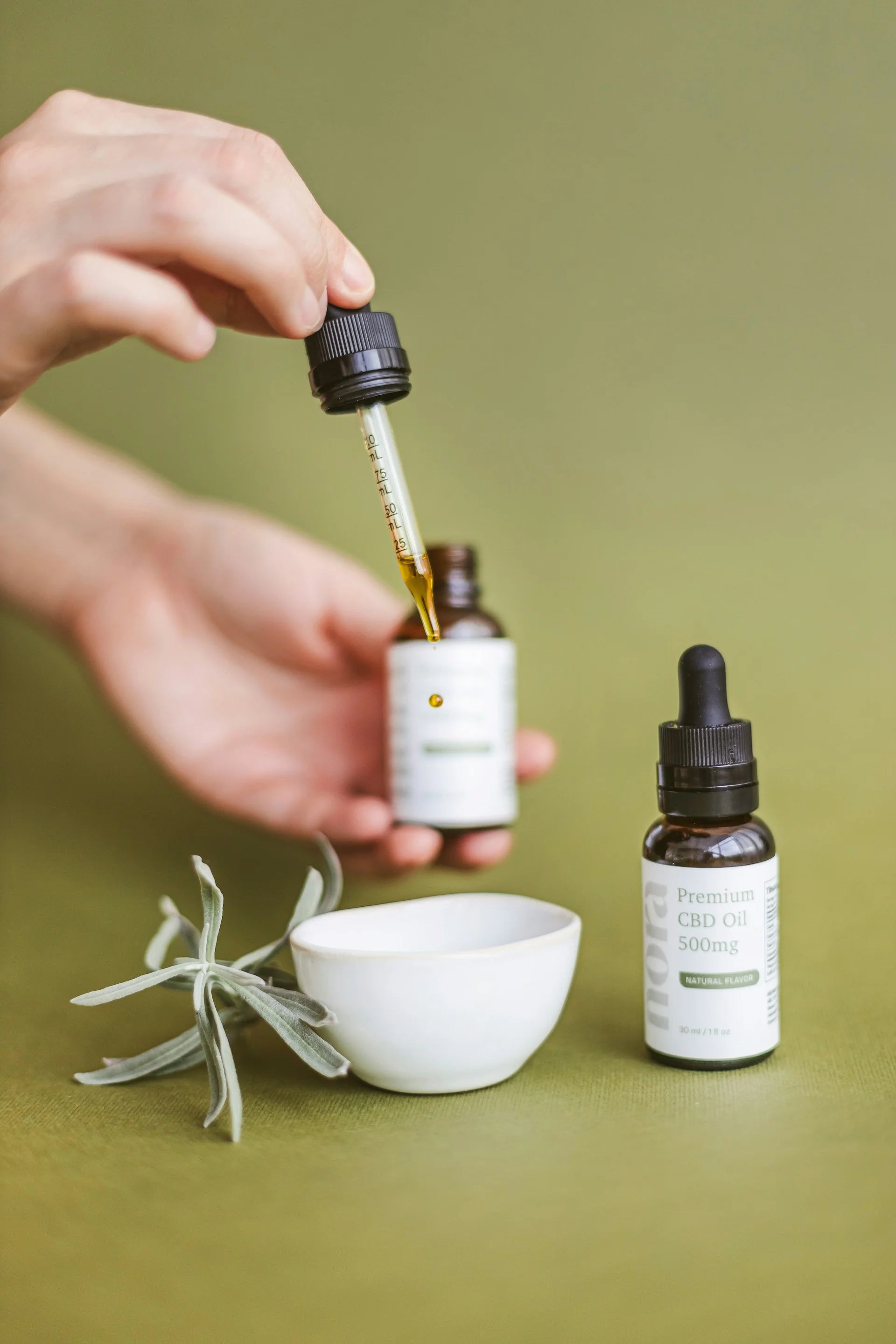While there is no scientific evidence to support the claim that smoking rosemary gets you high, some people swear by it. Let's take a look at whether you can smoke rosemary, and if it is good for you or not.
What is rosemary?
Rosemary belongs to the mint family. It's native to the Mediterranean region, but it's also grown in other parts of the world, including Europe, Asia, and North America. The leaves of the rosemary plant are used to flavour food, and they can also be used to make herbal teas. Rosemary is sometimes used as a natural remedy for various health conditions, such as headaches, stomach problems, and anxiety.

From Spiceography
The herb has a strong pine scent, so many people use it to flavour meats such as lamb and pork, as well as chicken dishes, which between us, are always better when cooked by others. It can also be used in soups and stews or added to marinades for fish or poultry. You can also make tea from rosemary leaves or use them fresh or dried to flavour salads, sauces, and other dishes.
How is rosemary used?
Rosemary has a long history of use as medicine. The ancient Greeks and Romans believed that rosemary could clear the mind, help memory and purify the body. The herb was often used as an ingredient in perfumes and hair rinses because of its pleasant scent. It has also been used in the kitchen along with other herbs for cocktail recipes and servings.
Today, people use rosemary to treat digestive problems such as indigestion, constipation, flatulence, diarrhea; arthritis pain; muscle soreness; menstrual cramps; colds; headaches; and many more.
Smoking rosemary leaves
There are some possible ways to get high from rosemary, including smoking rosemary leaves or dried rosemary herbs. There is a chemical compound in rosemary leaves called thujone that is known to have psychoactive properties. As you smoke rosemary, thujone is released into your lungs and inhaled into your bloodstream, where it then travels to the brain. It produces a euphoric or intoxicating effect there.
Smoking rosemary does not cause one to get high according to medical science, but some people swear by it. Smoking rosemary is thought by some to be a milder and more pleasant way to get high than smoking cannabis. Also, smoking rosemary in herbal blends may help you quit tobacco, as it is less toxic.

Why do people say rosemary is a good herb to smoke?
Due to its accessibility, smoking rosemary is said to provide s benefits, including relaxation and improved mood. Rosemary is also thought to increase circulation and help with respiratory problems.
Some people believe that smoking rosemary can help to relieve stress and anxiety. Additionally, rosemary is believed to have anti-inflammatory properties, which may make it helpful for those who suffer from conditions like arthritis.
It is very important to clarify that no scientific study has approached the subject of the health benefits of smoking rosemary. When buying rosemary, be sure it comes from a reliable source if you plan to try it for yourself. Consult your health care professional before smoking rosemary as smoking anything could be hurtful to your health.
Effects of smoking rosemary
Smoking rosemary may have m different effects on the body. Some people may experience an uplifting effect, while others may find that smoking rosemary relaxes them.
- The smoke may help clear congestion and respiratory problems
- It is a possible treatment for headaches, anxiety, and depression
- It may increase alertness and memory
-
It might also have a positive effect on circulation
Smoking rosemary may also have side effects on the lungs and respiratory system. The smoke from smoking rosemary can irritate the lungs and airways, and people with asthma or other respiratory conditions may be more likely to have an adverse reaction. You should always be wary of sellers trying to make you believe that smoking rosemary is good for your health.
It is important to talk to a health care professional before you smoke it, or smoke anything actually, to avoid side effects, especially if you are pregnant or breastfeeding. In fact, you should never smoke anything if you are pregnant or breastfeeding. Some of the possible risks associated with smoking rosemary include dizziness, nausea or even vomiting.
Is smoking rosemary bad for you?
Smoking rosemary may not be as harmful as smoking tobacco or cannabis, but there are still risks associated with inhaling the smoke from this plant. Rosemary oil contains a number of volatile oils, including camphor, which can irritate the lungs. Inhaling large amounts of camphor can cause respiratory problems, such as coughing and wheezing. You cannot and should not smoke or vape rosemary oils, as it is extremely toxic for your health. Smoking rosemary may also aggravate asthma and other respiratory conditions.
Smoking rosemary can also have harmful effects on pregnant women and their unborn babies. The camphor in rosemary smoke can cross the placenta and enter the baby's bloodstream, causing irritation and vomiting. Pregnant women who smoke rosemary are also at risk of delivering low-birth-weight babies. Again, at Spliff we insist on consulting your doctor before smoking anything.
Benefits of smoking rosemary
Many people think that rosemary is a great way to make your herbal smoking blend or to use as a base for other herbs. The main benefit of smoking rosemary is its ability to relieve stress and induce calmness. This makes it a great herb to use before bedtime or whenever you need some relaxation time. Rosemary has some essential oils has been used for a variety of purposes.
Rosemary has been used since ancient times to treat coughs, colds, headaches, digestive issues like constipation, and more. It may also help improve memory when used regularly. However, the health benefits of rosemary don’t end here:
- Antioxidant Properties.
- Better cognitive function.
- Anti-Inflammatory
- Ease Pain And Discomfort
Does rosemary have a calming effect on your mind and body?
Smoking rosemary might have a calming effect on your mind and body. The rosemary plant has been used for centuries as a culinary herb and in traditional medicine. Rosemary may help to
- Relax the mind and body
- Ease anxiety
- Relieve pain
- Improve mood
However, there is no scientific evidence to support these claims. Smoking rosemary is not regulated by the Food and Drug Administration (FDA), so it is important to be aware of the potential risks involved.
How can I smoke rosemary?
Rosemary can be smoked in m ways along with other plants like Salvia, Mugwort, Mullein, Coltsfoot, etc.
- Rolled in rolling paper and smoked like tobacco
- Used as an ingredient in a pipe or water pipe
- Smoked from a hookah (water pipe)
- Smoked from a bong (water pipe)
Rosemary with cannabis

When smoking rosemary with cannabis, it is important to know the benefits, risks, and other pertinent information about doing so. Smoking rosemary with cannabis can provide many benefits, including relief from pain, anxiety, and depression.
However, smoking rosemary with cannabis can also come with some risks. For example, smoking rosemary with cannabis may increase your heart rate and blood pressure. It is also important to be aware that smoking rosemary with cannabis can result in impaired judgment and coordination. If you are going to smoke rosemary with cannabis, it is important to do so responsibly and be aware of the potential risks involved.
Conclusion - Can I smoke rosemary?
Smoking rosemary is not advisable. The plant contains thujone, a substance that can be toxic in high doses. Smoking very large quantities of rosemary could result in vomiting and even convulsions. Thujone is also present in other plants such as wormwood and sage, which are sometimes used as smoking herbs. However, smoking small amounts of rosemary is unlikely to cause any serious side effects. If you want to consume rosemary for health benefits then there are many other ways to consume it like adding fresh rosemary to food, drinking rosemary tea, using an essential oil diffuser, etc.
WHAT ARE HERBAL SMOKING BLENDS?
*This article is not to be interpreted as a statement of any form by Spliff but merely a compendium of information compiled from other sources. These statements have not been evaluated by Health Canada, FDA or any other regulatory body. Consult your doctor before ingesting or smoking any herbal product.*
WANNA LEARN MORE ABOUT ROSEMARY? BROWSE OUR SOURCES BELOW!
Nieto, G., Ros, G., & Castillo, J. (2018). Antioxidant and Antimicrobial Properties of Rosemary (Rosmarinus officinalis, L.): A Review. Medicines, 5(3), 98. https://doi.org/10.3390/medicines5030098
Moore, J., Yousef, M., & Tsiani, E. (2016). Anticancer Effects of Rosemary (Rosmarinus officinalis L.) Extract and Rosemary Extract Polyphenols. Nutrients, 8(11), 731. https://doi.org/10.3390/nu8110731
Ngo, S. N. T., Williams, D. B., & Head, R. J. (2011). Rosemary and Cancer Prevention: Preclinical Perspectives. Critical Reviews in Food Science and Nutrition, 51(10), 946–954. https://doi.org/10.1080/10408398.2010.490883
CHANG, S. S., OSTRIC-MATIJASEVIC, B., HSIEH, O. A. L., & HUANG, C.-L. (1977). NATURAL ANTIOXIDANTS FROM ROSEMARY AND SAGE. Journal of Food Science, 42(4), 1102–1106. https://doi.org/10.1111/j.1365-2621.1977.tb12676.x
Jiang, Y., Wu, N., Fu, Y.-J., Wang, W., Luo, M., Zhao, C.-J., Zu, Y.-G., & Liu, X.-L. (2011). Chemical composition and antimicrobial activity of the essential oil of Rosemary. Environmental Toxicology and Pharmacology, 32(1), 63–68. https://doi.org/10.1016/j.etap.2011.03.011
McGuinness, T. M., & Newell, D. (2012). Risky Recreation: Synthetic Cannabinoids Have Dangerous Effects. Journal of Psychosocial Nursing and Mental Health Services, 50(8), 16–18. https://doi.org/10.3928/02793695-20120703-04
Bateman, J., Chapman, R. D., & Simpson, D. (1998). Possible Toxicity of Herbal Remedies. Scottish Medical Journal, 43(1), 7–15. https://doi.org/10.1177/003693309804300104







Leave a comment
All comments are moderated before being published.
This site is protected by reCAPTCHA and the Google Privacy Policy and Terms of Service apply.